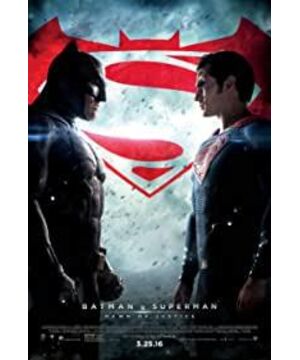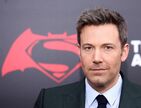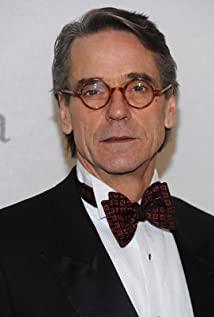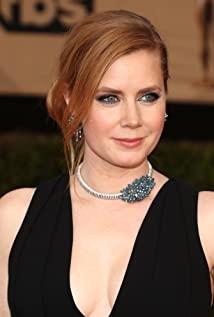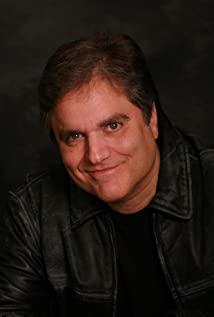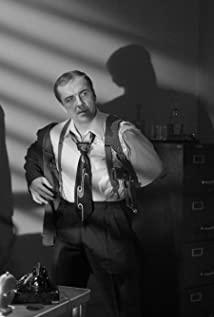It's not difficult to abuse "Batman v Superman: Dawn of Justice". After all, this film is full of holes in its appearance, such as loopholes in the story and abuse of the soundtrack. Extremely, the splicing meaning is unclear... again and again. But rather than abuse, I'm more curious, wondering what went wrong? How can a movie with Warner Studios stalemate and some of the best originals in DC history as the basis be turned into a wrong or even a failed adaptation?
After thinking about it for two days, I finally understood: because of this movie, there is no audience.
This may not be accurate enough. "There are so many fans who want to watch cool movies, and there are so many super bat fans from the comics circle! It's too late to look forward to it, how can there be no audience?" an ordinary person said. Yes, I was one of them, when I heard Zack Snyder and the screenwriters' interviews reiterated their admiration for Frank Miller over and over again, and vowed not to make hasty adaptations, I was looking forward to it, after all Bringing the second half of "The Dark Knight Returns" to the screen is inherently risky, and Miller's political stink is as far-reaching as his portrayal, the anti-Knicks satire, the media ecology Cold eyes... Christopher Nolan didn't stop at this? (Of course, many fans who don't do their homework and blindly follow the author's theory don't realize this. They are too busy to praise or bring down "Nolan's Batman") This time, the old Bat will beat Nick after the disbandment of the Justice League. The plot of Mori's thug and Superman was changed to the rise of the Justice League in one fell swoop, and it was more difficult to reincarnate from the dead. If it wasn't for love and persistence, why should you choose this change? In mid-March, the film's New York premiere revealed that the film will be in the middle of "Death of Superman" (Death of Superman), which adds to my confidence in this film; animation adaptations have always been DC's strong point, obviously This taste is also evident in live-action movies.
I'm wrong.
The film did adapt The Dark Knight Returns and The Death of Superman, and gave its audiences everything it wanted. There's only one problem: it's not trying to please us in the present, but someone in the future. "Batman v Superman: Dawn of Justice" is the most "disorganized" superhero movie I've ever seen: it's a sequel, and the prequels and the main ones haven't even started.
I believe most people have noticed that the only narrative thrust in the first half of the story does not come from either Superman or Batman, but the new villain whose origin is unknown from beginning to end: Rex Luthor. The whole drama revolves around the two years after Superman appeared in the Metropolis, and the admiration and fear of Superman have been mixed for two years. Kryptonite, and in the way of pushing the government bill, tactfully explained the gist of the movie for the audience in front of the screen: Why did Superman fight Batman? He was the first to point out that Superman's strength was too great to pose a threat to human beings, he was the first to find out about Superman's weaknesses, he was the first to collect information on metahumen, and he was the first to help Superman. It was also him who went to Batman's battle appointment. Compared with his activeness, the behavioral logic of Superman and Batman in the plot is rigid, even rigid.
Of course, Rex's over-intelligence has a purpose in this arrangement, in order to let Superman and Batman avoid certain disputes that should not be handled by the parties themselves.
In the words of Rex Luthor, the confrontation between Batman and Superman in this film is "God vs. Man", "Day vs. Night", "Krypton's Son vs. Gaotan Bat". At the reception where the conversation was not masked, Bruce revealed that he cared about Superman's power as a "god" in the country and the people, and the alien identity of "Krypton" made people worry about the possibility that human beings will one day be counterattacked; Clarke On the contrary, he cared that Batman relied on the edge of "Night" to lynch the Bat brand of justice in Gaotan, and ignoring legal principles was trampling on freedom. The former has the physical panic that the latter is a non-me race, the latter disdains the former's solipsistic ethic, Batman has to trust Superman's moral principles to constrain his natural strength, Superman has to convince Batman to stop lynching, or Batman Convince Superman of the legitimacy of the lynching, and the two sides have the possibility of reconciliation.
In order to increase the tension of the conflict, the film chose to use two more biased characters, Batman and Superman, as the basis for the film's characters. Batman and Superman have had a lot of solo movies, but in this film, their lives are heavy, and to put it bluntly, it is a reboot. The film's Batman (Bruce Wayne) image is blended from the paranoid, suspicious and aging old Bat in "The Dark Knight Returns", and the new Superman (Clarke Kent) is from the 2013 reboot of "Superman: Iron Hero" ( Man of Steel), after a long lapse, begins to associate with Louise and travel the world as Superman. They also have one thing in common: they both broke the taboos of the past and killed or nearly killed people. The intention of these arrangements is obviously to strengthen the tit-for-tat between the two sides in terms of morals, positions and principles.
However, this kind of idea is bound to be inappropriate, and this battle is bound to be unsolved from the very beginning. Of course, I'm not talking about the ridiculous rainy night meat blog, but because the moral debate behind the two has its inherent flaws.
Why? One of the accusations against Superman by Rex and the U.S. congressmen was that the timing of his involvement in human society was not transparent enough. No one except Louise and Rex knew why he was going to Africa to destroy villages. From a public standpoint, Clark The Superman brand of justice is no different from Batman's lynching; further, even if it is reasonable to protect his lover, is human society willing to accept Superman's unresponsible and unconditional intervention without any nationality or public identity? Is there room for discussion or even a referendum? These questions are far more important than the superhuman threat theory. Most versions of Batman have always been aware of their intractable contradictions in legal reasons, and they often do not seek to understand the legal system. This version of Batman calls himself a criminal, and the Frank Miller version has even become a terrorist. But, is this new version of Superman who has killed his fellow villagers tenable?
Audiences who are familiar with "The Dark Knight Returns" know that the ultimate solution Superman found in this work is to cooperate with the government and become the government's fighting dog. Obviously, this film has no intention of following, let alone condemning or continuing to dialectical Superman's difficulties, so he cunningly connected to the middle section of "The Death of Superman", in exchange for Superman's sacrifice for mankind's unconditional understanding, evasion For these controversies he should have been questioned on and off the show. But this has created another untenable controversy: If the merits and demerits can be offset, is Batman's brand lynching justified? The contradiction between lynching and the rule of law can only be turned into disregard by ambiguous public opinion? It is not difficult to understand why the first half of the story has to rely on Rex Luther to promote the story; after all, these controversies can be used as a topic at the beginning, but they must not be regarded as the end. It is necessary to manipulate moral problems and the villain's pair Black gloves are always easier than red cloaks and black masks.
But for some viewers, the problem may be simpler and more serious. That is: Rex Luthor, who is it?
This is one of the symptoms of this film. Let me ask, if you are not invaded by the overwhelming introduction information, and you just go to the theater to watch the movie, who would know that this Rex Luthor is the classic villain of Superman, just like Batman is to the Joker? Even if I know it, the character design of Meiman in different versions and events will be slightly revised. This one is as rich as Batman and equally afraid of Superman, but he is not afraid to create another threat force similar to Superman just to destroy him. How can Rex, who knows the true face of Superman that has never been revealed.... so capable? What is the main reason why he hates Clark? Completely unknown from beginning to end. It is not news that the settings of American comic characters change with different directors and major events, and so is their personality; however, these "antecedents" should be clarified to the audience as soon as possible after the restart, even if they are new characters, so why not talk about them ? It's still the same old practice, without doing your homework in advance, who knows who this sudden outburst of Rex Luther is? This is the wrong first move in the play.
Looking further, although it has been mentioned in many ways that Batman and Superman have their original scriptures in this work, in fact, even the audience who have read the original scriptures cannot fully understand the whole play: except for the fact that the era of the story must be impossible to reproduce (you want to see Does Batman wear a BB buckle?), many details such as Robin's death, The Joker mystery, Doom's origin have been greatly changed, making "Batman v Superman: Dawn of Justice" a new work; itself is a reboot of the movie Superman also has some slightly different changes due to a two-year difference in the story, such as his relationship with Louise.
Because these audiences do not understand, the "changes" that are not mentioned in the play, Superman and Batman have made a series of behaviors in the play that they do not care about. Why did Superman choose to be the guardian of the earth? What does he think of his alien identity? How to determine who is friend and foe? Does he support America? This series of questions that people blame and long for him to answer inspired the whole play. Louise and his mother tried to answer, but he lacked his own words; the only thing he showed was his tendency to be a good partner who is extremely protective of his girlfriend. , and the sympathy that he blamed himself when the Congress exploded, he is really a god, just a god, only performing miracles and divinity, and he is the kind that lacks IQ. Batman didn't get much better. In the first half of the show, I saw him fearing the physical threat of Superman like a little daughter-in-law. It's reasonable, but why did he become so stubborn, and what's the internal motivation to promote his self-image even at the expense of branding criminals? where? do not know. He's a madman from start to finish, being persuaded of the possibility of working with aliens for very weak reasons (Superman wants to protect his mother), he says a lot, but doesn't say anything more important.
Why? Their "silent words" and "gaps" must have and should have a set of reasonable character explanations behind them. Of course, most viewers know that Superman must be kind in the end, because it's a character setting, and Warners wants to make hundreds more episodes; a few viewers know that Batman's paranoia has its own reasons, because the film implies that he has experienced "The Dark Knight Returns". The death of Robin in ", but he did not retire, but more violent law enforcement, and even no longer scruples about killing. But that's the setting, it's a quote, it's not what the film actually made. Other than relying on these peripheral sources, I can't see the motives behind the actions of Superman and Batman, or even know why and for whom they are heroes. The only factor that can explain all this is outside the play, not in the play.
This is the root of the crux of this film: it requires the audience to "brain" a set or even more than one personal film of Superman and Batman, these films explain these clearly, and also convince themselves that they have seen it.
The filming party obviously presupposed that the audience who went to the theater had "watched" these prequels that didn't exist, and sympathized with the two rebooted Batman and Superman that didn't exist, and they also knew about "The Dark Knight Returns" and "Superman". What did "Death" act in, what are the intertextualities with this film...and then I started enjoying the movie. In other words, to put it more clearly, this film is just a sequel made for the sake of the money. I can imagine that Warners wouldn't rule out making this fantasy into a real movie, such as the already negotiated Banford Elek board Batman, but the audience in 2016 can't see it yet, all we have to do is accept and Convince yourself that these movies exist, and that Batman v Superman: Dawn of Justice has its own logic behind it, and then, like the All-Stars who support The Avengers, shout for their idols and get excited... ...
how is that possible.
Such audiences take for granted that ears do not exist. Even if "The Dark Knight Returns" and "The Death of Superman" are more famous, even if the audience has seen every version of the man in the cape, we still know which one we love and hate, and we won't be obsessed with the red cape and the black mask. , even more reluctant to accept the ignorance of a long film without warning. Without seeing the motives behind the actions of Superman and Batman, or even knowing why and for whom they are becoming heroes, it is impossible for anyone to sympathize and pity them. A movie made for such a non-existent audience is naturally unable to please anyone in the present, and it is just a time-travel-like confusion.
Such a disordered setting without intertext must also affect the overall chaos of the whole film. When the film entered the Congress and exploded, it seemed to announce that the moral dialectic of the film was suspended without warning.
One of the biggest absurd elements is the villain Rex Luthor, who even arranged what Batman should do to guard against Superman, and completed the journey of exploring the Kryptonian ship that Superman was supposed to do, and even "The Dark Knight Returns" Here, the old bat seized the city's electricity to manufacture artificial kryptonite, and tried to defeat Superman, all of which were transferred to him. Can you imagine that this scene can best reveal a famous scene of how humans rely on intelligence and collective exchange to defeat foreign gods, and is used on a purely functional villain? Just when Rex was powered on, Batman was still inexplicably rescued by the alien mother with the same name as himself, and Superman was resting at the speed of light for no reason. Is this still a heroic drama? Is it still a tribute?
The second is the super bat and rainy night battles that are broadcasted continuously. The truth is that Batman wants to challenge Superman unilaterally, standing under the lights in the middle of the night and waiting, without thinking that the other party disappears on the earth for a few days, there is no reason to come to a future game The possibility of a covenant; Superman started a death fight with Batman because of Rex's troubles, and while releasing water, he found an opportunity to ask for Batman's assistance, as if he forgot that the other party was still a mortal, but he could be far on the other side of the horizon. A demigod who heard his girlfriend's heart beating faster. Not to mention that Rex already has the record of Doomsday, so why take a huge risk to urge the two heroes to meet and get to know each other?
The scene where Superman wields the Kryptonian green gun and perishes with Doomsday is well-intentioned, in order to build the image of Superman and Batman defeating the villain in an alternative way of cooperation (power and technology). However, one is the weapon that Rex Luthor "gives" to Batman, which has weakened the symbol of the gun's endorsement of Batman; the other is that Wonder Woman (Wonder Woman) has jumped from pure stringing. Becoming the main force of the battle, the performance is dazzling, but it also makes the audience wonder: Since the heroine is by her side, ask her to step forward and shoot the gun, won't everything be fine? Does Superman have to die? Of course it was another self-talk. As for the futility of Superman's girlfriend throwing a gun and picking up a gun, it's even more stupid to look for trouble.
There is a funeral at the beginning and end of the film, which is very meaningful. Because the funeral of Wei En and his wife prompted the birth of the hero Batman, Clark's funeral prompted the budding of the Justice League, both from death to life. But at this point in the plot, these two funerals seem to be burials for Superman and Batman themselves; after all, when the first half of the film is dominated by the only villain Rex, and the second half is actually saved by the hero Superwoman who saves the world. The movie is called "Batman vs Superman", but it has become a movie of Rex vs. a woman in its bones, and it is not much different from the residual gas of a corpse, so I can't bear it.
Of course, if you want to say that "Batman v Superman: Dawn of Justice" has nothing to do, it is not necessarily so. It has very good special effects scheduling. Chuck Snyder's ability to communicate with the special effects team is obviously better than that of too many directors. The single-camera composition of the comics, the creation of the oil painting texture, and the sense of blow at high speed are far better than Marvel's series of video game upper body, the increasingly poor visual performance is more profound; to put it directly, Marvel's films in the past decade except "X-Men: Days of Future Past" (X-Men: Days of Future Past) are in The visual language is simply a joke, thinking that two CG silver lights on the back of the butt can highlight the speeding movement, and I should be thankful for not being disrespected by the mother. Superman's creation myth and Batman's flesh myth mirror each other, and also have different interests. No one has too many expectations for a superhero-type director, because this is a drama led by filmmakers and producers, and the group of talented people Warner hired are above the standard.
The problem is still filming. The production pattern determines the blueprint of a movie, and the "no audience" set of "Batman v Superman: Dawn of Justice" can't please new fans or comic fans. Obviously, it should not be attributed to the director. , but a lack of production trade-offs. As for the reason behind it is too impatient, want to launch the Justice League early? Or do you make a sharp turn halfway through the shoot, resulting in the dilemma of cutting first and then shooting? unknown.
Or, in fact, the production is very simple. He thought that everyone in the audience was as soft-hearted as Larry, the boss of the newspaper. Louise didn't even need to have a meeting. Just reported a few seemingly provocative keywords outside the conference room door, and the boss would be obedient. Take out your wallet and let people wander around? ("Clark, the front page title is Superman vs. Batman, and then put a question mark behind, go right away!") However, the audience is actually more calm like Wonder Woman, don't forget, if Doomsday didn't appear, she would rather take a shower and go shopping and play on the computer , and did not intend to intervene between Superman and Batman, because she knew very well that this fight, which was caused by a stupid misunderstanding, was just a farce.
View more about Batman v Superman: Dawn of Justice reviews


